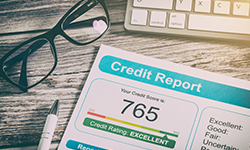Home Equity Loan
With a Home Equity Loan you can use the equity in your home to help you pay for large or unexpected expenses like home improvements, travel, medical bills, weddings, or consolidate debt.
How it Works:
1. Build Equity In Your Home
Home equity is the amount
of your home that you own
(free and clear of financing),
and it grows over time
when you make payments
on your mortgage.
2. Determine Your Equity
Your home's equity is the
portion of your home that you
own, calculated by subtracting
the balance of your mortgage
from your home's market value.
3. Let Your Home's Equity Work For You
With a Home Equity Loan you
can use your Home's Equity to
help pay down debt, make home
improvements, and pay for
other large expenses.
FREQUENTLY ASKED QUESTIONS (FAQ)
A Home Equity Loan is a fixed-rate installment loan — meaning the loan amount is dispersed in one lump sum and paid back in monthly installments — that allows you to borrow a portion of the equity in your home. A Home Equity Loan is sometimes called a second mortgage and just like your first mortgage, it is secured by your property.
There are several benefits to Home Equity Loans. For example:
- Home Equity Loans, typically have lower interest rates than other loans or other forms of credit (like credit cards or personal loans) because your home is used as collateral — meaning the risk to the lender is less than with an unsecured loan. Also, a lower interest rate means that you'll be paying less in interest over time.
- Depending on how much equity you have, the amount of money you have access to borrow can be large.
- According to the IRS, you may be able to deduct the loan's interest on your taxes if you use the Home Equity Loan to improve your home. It's always wise to check with your tax advisor for details.
- Taking out a Home Equity Loan can help you pay for medical or dental bills not covered by insurance, home and car repairs, travel, and more. You can even use a Home Equity Loan to pay off or consolidate debt like high-interest credit cards. However, it is important to weigh the pros and cons — If the bills were from overspending and you don't solve the underlying issue, you could charge up the balances again. In addition, you'd be trading unsecured debt for secured debt, putting your home at risk.
A Home Equity Loan is a loan for a fixed amount of money that is secured by your home. You repay the loan with equal monthly payments over a fixed term. A Home Equity Loan may be right for you if you want to make major home renovations, pay for nonrecurring expenses, or consolidate debt.
Contact Us
If you have any questions or would like more information on Home Equity Loans or other strategies for debt repayment, give us a call at (850) 434-2211 and select option 2 to speak with a credit union representative in our loan department.
Before taking out a Home Equity loan we recommend taking a good look at your finances and speaking with a knowledgeable financial representative to help you decide on the best option for you. While the equity in your home is yours to borrow, you still have to qualify for a Home Equity Loan. A good credit score gives you a greater chance of getting a Home Equity Loan with better terms. You will also need to have sufficient equity in your home to take out a Home Equity Loan. As helpful as Home Equity Loans can be, it's worth your while to look at other alternatives like:
- Personal Loans: Most personal loans are unsecured, so you can avoid using your home as collateral. Although, interest rates are typically higher than they would be with a Home Equity Loan, if you have a good credit score, the rate may be low enough to make it worth your while.
- Debt Consolidation Loan: If you're thinking about taking out a Home Equity Loan to consolidate debt, it may be worthwhile to look into a Debt Consolidation Loan. While a Debt Consolidation Loan, is a type of personal loan, it may be a good option for you if you want to pay off several debts at once, streamline your monthly payments, and are hesitant to use your home as collateral for your Home Equity Loan.
- Credit Card Balance Transfer: Another option that may be worth looking into if you're thinking about a Home Equity Loan to consolidate debt is a Credit Card Balance Transfer. Transferring your balance from high interest credit cards or loans to a credit card account with a lower interest rate could save you money on interest and help you pay down your debt quickly.
- HELOC: A HELOC or Home Equity Line of Credit may be a better option for you if you don't need one lump sum. Unlike an installment loan, a HELOC functions like a credit card with a limit based on your home's equity. With a HELOC, you use only as much credit as you need — meaning you make payments only on the amount that you actually borrow and not the full amount available.
- Budget: It's always a good idea to take time to rebalance your budget. If you can find ways to reduce spending or sell off things that you don't need anymore, you can keep your home's equity intact.
- Cash-out Refinancing: Another option you may want to look into is refinancing on a collateral loan (i.e. auto or mortgage) you may have at a lower rate and withdrawing cash at closing. The new loan would be higher than your current one since the amount you take out (plus any closing costs) is added to the loan.
A Home Equity Loan and Home Equity Line of Credit (HELOC) allow you to tap into the equity of your home to borrow money. However, you should not confuse a Home Equity Loan for a HELOC because, Home Equity Loans are installment loans, meaning you repay the loan over a set number of years at a fixed monthly payment and interest rate. Much like a credit card, a HELOC is revolving credit. This means, you can choose how much of the credit line you'd like to use at any given time during the draw period for your line of credit. During that time, you make payments on the amount that you've borrowed. Another difference between Home Equity Loans and HELOCs is that a Home Equity Line of Credit typically has a variable interest rate.
Opening a Home Equity Loan can affect your credit score. Each credit bureau uses a slightly different calculation, but typically 10% of your score is based on new credit — meaning opening new loans or credit accounts has a short-term negative effect on your score. Another factor that makes up your credit score is how much of your available credit you are using. So, adding a large Home Equity Loan to your credit report can negatively impact your score for a time. However, if you make regular monthly payments on your Home Equity Loan, it can positively impact your credit score because your payment history makes up a large amount of how your credit score is calculated.
Below are a few resources to help you learn more about credit scores.
Our Terms
Members First Credit Union of Florida offers the following terms on Home Equity Mortgage loans:
- Loans up to 15 Years
- Borrow from $20,000 - $200,000
- Fixed Interest Rate for the life of the loan
- No Points or Origination Fees (borrower pays only a $285.00 Document Preparation Fee)
- No Intagible Tax
- No Private Mortgage Insurance (PMI)
- No Escrow
- No Closing Costs Specials*
We're Here to Lend A Helping Hand
Questions? Give us a call. Speak with a credit union representative at (850) 434-2211 with questions or to start the application process. If you're ready to get started, apply online today!
RESOURCES
* Limitations Apply.
Rates, terms, and conditions are subject to change and may vary based on credit worthiness, qualifications, collateral age, and conditions. The APR will be disclosed prior to an advance being made on a loan.
Home Equity Disclosures: Home Equity Early Disclosure & What You Should Know About HELOCs.








